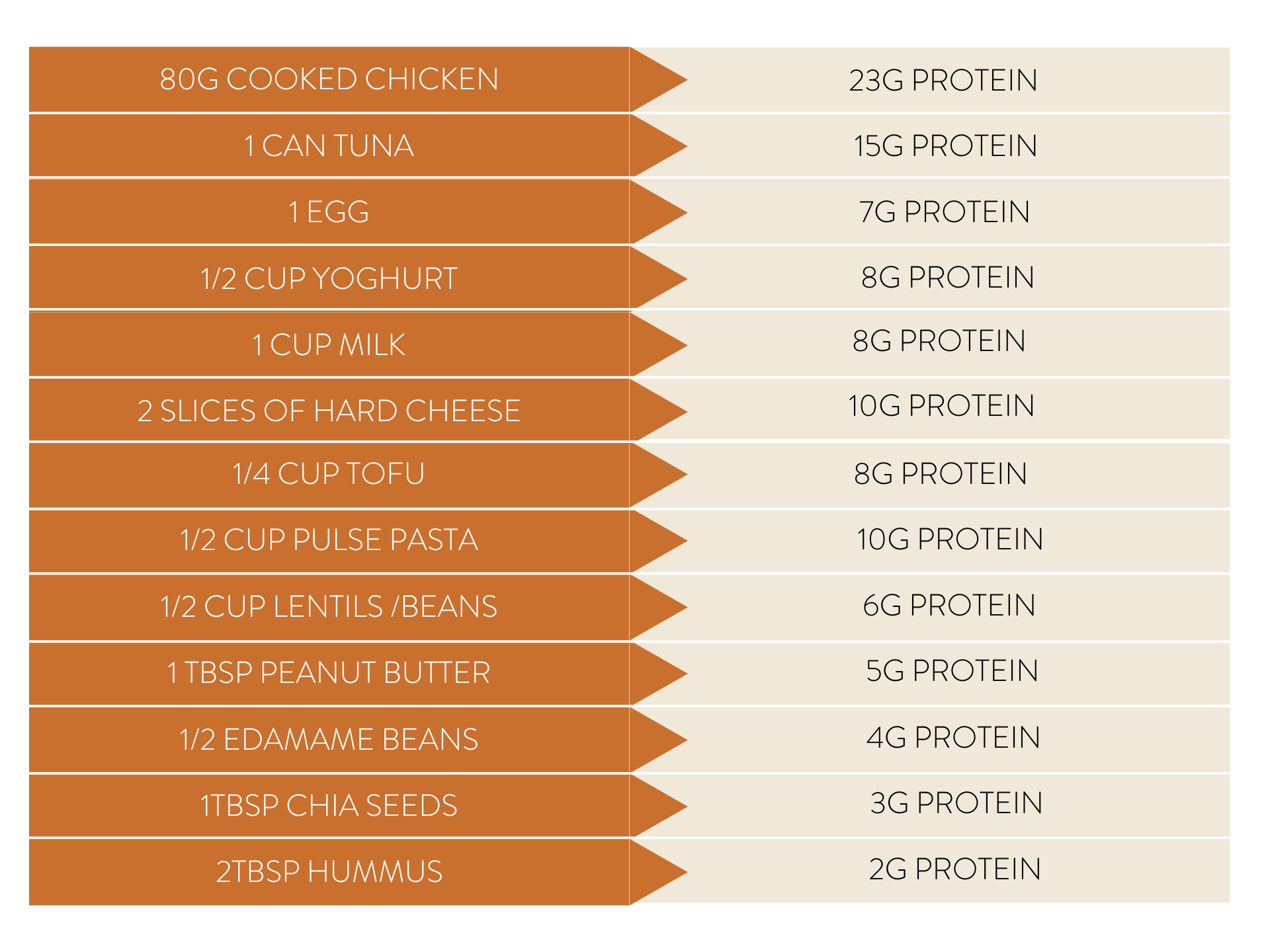Is my child eating enough protein?
Many parents are often concerned their child isn’t getting enough protein.
Protein is part of all cells and is important for growth and development, the repair and recovery of muscles, skin, organs, hair, and nails. Many food sources of protein also provide nutrients such as iron, zinc, magnesium, calcium, vitamin E and B vitamins.
Toddlers require only 14 grams total per day to meet their needs which is quite difficult not to achieve.
As children get older their protein needs increase as show to the left
Aiming to include a source of protein at each meal (breakfast, lunch, dinner and ideally at snacks) is a good way to ensure they are getting enough without worrying about counting grams of protein.
To give you an idea of how much protein there is in common foods here is just some of the options:
Many parents are worried when their child doesn’t eat meat or not much meat, this isn’t an issue as there are many meat-free protein options! Some tips for offering non-meat protein options at meals include:
Eggs: on toast in the morning, or scrambled through fried rice.
Dairy foods: (milk, yoghurt, cheese): incorporate at snack times like cheese and wholegrain crackers, or yoghurt and milk in a smoothie with fruit.
Legumes / beans: in a lentil bolognaise sauce, use legume pasta instead of wheat, mashed bean dip, hummus, black bean meatballs, baked into falafels.
Tofu: offer tofu fingers, or in a stir-fry.
Nuts and seeds: nut butter on toast or wholegrain crackers, add seeds into muffin recipes or try chia pudding.
Protein is an important part of a healthy balanced diet for children.
Often it is hard to not meet their requirements, but sometimes when children are picky it can be difficult to know whether they are meeting all their nutrition needs. Seek support from a Dietitian or GP if you need more assistance.



